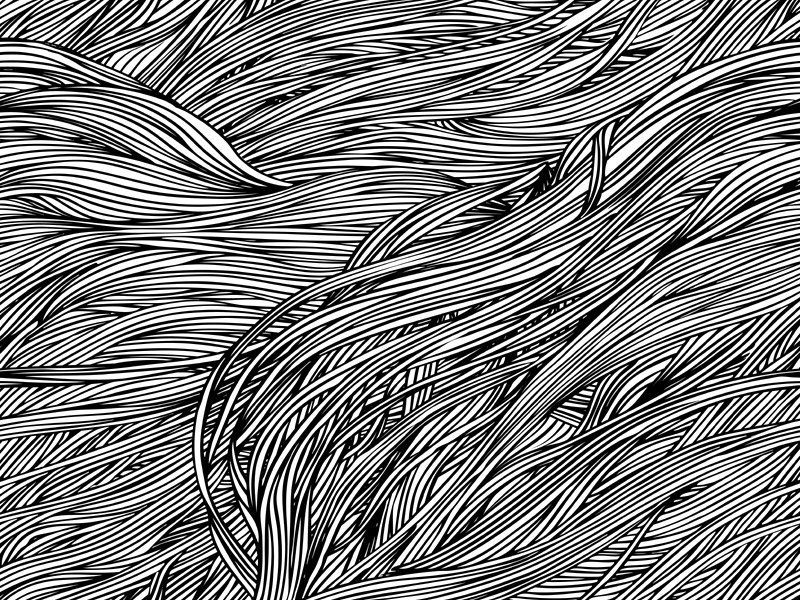
Scorching
Exposure to excessive sunlight can over-dry hair, leaving them brittle and prone to split-ends and breakage. This is particularly threatening for hair that has been chemically treated as the chemicals have already stripped the hair of its natural elements, making it all the more vulnerable to harmful UV rays.
According to beautician and owner of a local salon, Fatima Kamaal, an easy way to counter summer heat is by washing hair with cold water. “Most people shower with warm or lukewarm water which only accelerates the scorching on the scalp. It is better to use cold water when washing hair as it is easier on the skin and also boosts shine.”
Many hairstylists also suggest investing in good quality leave-in conditioner. This will secure hair by creating a protective layer around it, thereby shielding it from the sun. In addition to this, conditioner will keep dry hair moisturised and soft throughout the season. “I would also recommend a thorough protein treatment every 15 days to keep dryness at bay,” adds Fatima.

Green Hair
Chlorinated hair, commonly referred to as green hair, is a recurring problem for many women, every summer. While many swimming pools prohibit swimming without swimming caps, people are generally lazy and try to avoid the hairpiece, exposing their manes to the multitude of chemicals found in chlorinated water.
Every strand of our hair is protected by a lubricant called sebum that acts as a natural moisturiser for the hair follicles and scalp. Unfortunately, chlorine vaporises sebum. As the layer of the lubricant gradually depletes, the hair strand becomes more and more dry.
Once again, green hair is a particularly pertinent issue for those who have had chemical treatment. The ammonia that is found in hair dyes, sprays and creams etc, breaks down the bonds that give hair its shape, making it weaker and more susceptible to damage.
Moreover, metals like copper also seep into the pool water from adjoining ladders, diving boards and other pool fixtures like paint and tiles which release chemicals that are hazardous for hair. In order to avoid green hair, it is advisable to rinse hair thoroughly before entering the pool to saturate the hair strands with fresh water. This way, it is harder for unwanted chemicals to get under the hair shaft easily.
Lice
Terrible as it may sound, summer begets lice and nits in the hair. These tiny parasites germinate on the hair shaft and multiply rapidly, causing irritation and itchy skin on the scalp. While lice are generally contagious and contracted from others who have already been infected, sweating and dirt on the scalp are easy breeding grounds.
“Getting rid of lice can be very problematic as many of the anti-lice shampoos, creams and other treatments found in the market don’t always work,” explains Fatima. “Personally, I think the best alternative is to apply a mixture of apple cider and vinegar to your hair. Taramira oil also eradicates lice completely.”
Overuse of hair appliances
Any heat-styling, chemical treatments and even simply brushing or combing can weaken and break hair, regardless of the weather. The threat only increases in the hot summer months when your hair is already undergoing natural damage due to the sun.
In order to reduce the effect of heat, Fatima recommends protective serums and regular oiling. “Women must remember that just oiling will not make much difference,” says Fatima. “One should take steam to open up the pores and allow the oil to seep in. Wrapping a hot towel around oiled hair can also help, as can heating the oil for a minute before application.”
Fading hair
“UV rays from the sun affect coloured hair in more ways than one,” suggests Fatima. “They also tend to fade the colour of dye into a pale orange shade that ruins one’s image.” For this purpose, Fatima suggests ‘blue shampoo,’ a specially-formulated shampoo that safeguards hair colour against the son and curtails fading. “Blue shampoos offer UV protection, make your hair colour last longer and are available at any super market at a low price. I recommend it to all my customers.”
Published in The Express Tribune, Ms T, May 18th, 2014.

















COMMENTS
Comments are moderated and generally will be posted if they are on-topic and not abusive.
For more information, please see our Comments FAQ